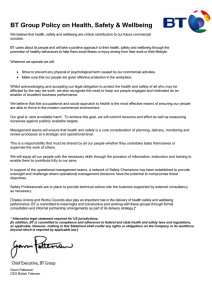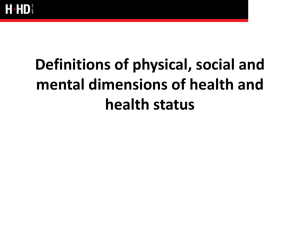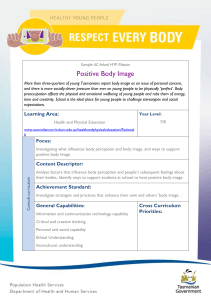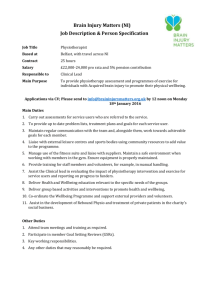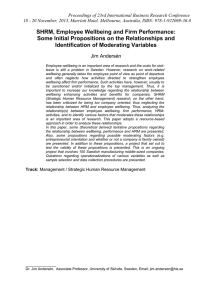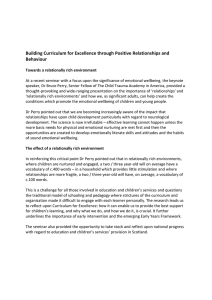Motivation and Routine and Habits Performance Goal Setting
advertisement
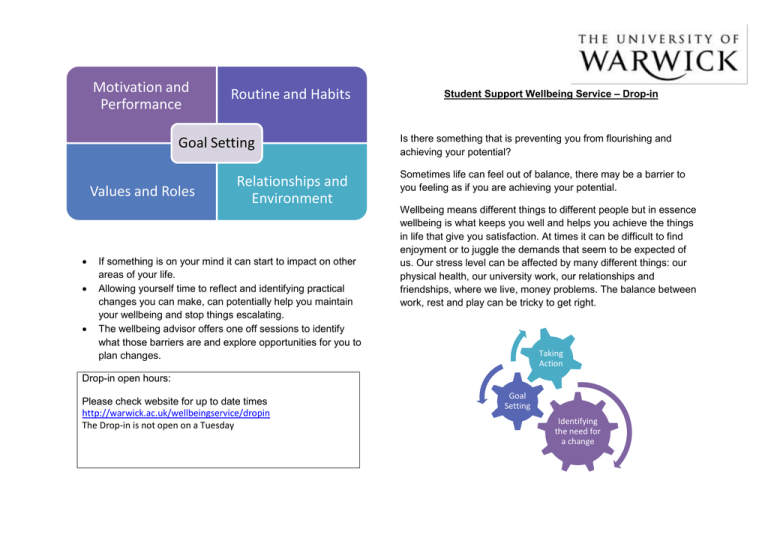
Motivation and Performance Routine and Habits Goal Setting Values and Roles Relationships and Environment If something is on your mind it can start to impact on other areas of your life. Allowing yourself time to reflect and identifying practical changes you can make, can potentially help you maintain your wellbeing and stop things escalating. The wellbeing advisor offers one off sessions to identify what those barriers are and explore opportunities for you to plan changes. Student Support Wellbeing Service – Drop-in Is there something that is preventing you from flourishing and achieving your potential? Sometimes life can feel out of balance, there may be a barrier to you feeling as if you are achieving your potential. Wellbeing means different things to different people but in essence wellbeing is what keeps you well and helps you achieve the things in life that give you satisfaction. At times it can be difficult to find enjoyment or to juggle the demands that seem to be expected of us. Our stress level can be affected by many different things: our physical health, our university work, our relationships and friendships, where we live, money problems. The balance between work, rest and play can be tricky to get right. Taking Action Drop-in open hours: Please check website for up to date times http://warwick.ac.uk/wellbeingservice/dropin The Drop-in is not open on a Tuesday Goal Setting Identifying the need for a change What can be expected from a session? The Wellbeing advisor will introduce herself, explain that the session is confidential and gain some background information to gain an understanding of you and your situation. Intervention will then be tailored to your needs, this may include: Identifying the factors that are impacting on your life and what you need to stay well. Enabling you to set a goal. Signposting you to services that can help. Examples of interventions: Motivation and performance: Is a sense of boredom, hopelessness or a lack of drive impacting on how you initiate and take part in activities? Do you find yourself procrastinating or having trouble making decisions, concentrating or problem solving? We can explore what you need to get done and what the barriers are to achieving this. Routine and Habits: Are there not enough hours in the day? We can look at what you prioritise and how you plan and organise your time using tools such as timetables and exploring what can be changed. We can look at how you work, rest, play and take care of yourself to ensure a worklife balance. Values and Roles: It is impossible to give 100% to each aspect of your life that is important. Sometimes we need to put more energy into one thing at the expense of not having the time or energy to do another. Using a tool such as the wheel of life http://www.mindtools.com/pages/article/newHTE_93.htm helps to identify where you effort is currently being spent and how it can balance this to ensure that you maintain important roles. Relationships: Do you find the people in your life are supportive? Are there difficulties getting along with others? Is there conflict in your relationships? Are you able to express yourself, your preferences and feelings in a way that respects others? Whilst we can’t change how others act and behave, you can use the session to explore how you respond. Environment: If you are experiencing financial difficulties, you could be signposted to the Student Funding or to online budgeting tools. The service can also support you in identifying, with whom to liaise in regards to accommodation or adjustments to your course. Information about all student support services can be found at http://www2.warwick.ac.uk/services/student-support-services/
